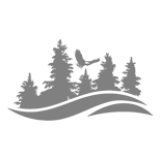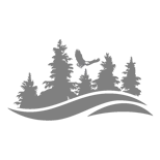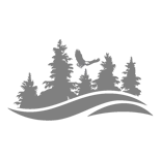Chemistry
Chemistry is the study of matter, its composition, structure, properties, and changes. Central to natural and physical science majors, chemistry serves as a foundation subject for many disciplines while providing a pathway into chemical sciences and chemical industry. As a technical field of study that requires strong laboratory skills and experience, job opportunities span a broad range of sectors from education to research to industry to medicine.





This course will study basic chemical principles including atoms, chemical bonds, gases, chemical reactions, aqueous solutions, pH, inorganic elements, and chemical calculations. This course is intended for health sciences, general education, and as a prerequisite for CHM 250.
5.0 Units / 4.0 hours LEC; 3.0 hours LAB
Prerequisite: MTH 60, MTH 80, MTH 178, with a minimum grade of C, or placement into MTH 220
This course will study covalent bonding, organic molecules, chemical structures, functional groups, chemical reactivity and elementary mechanisms as it applies to organic and biochemistry. Families of molecules include alkanes, alkyl halides, alcohols, alkenes, alkynes, carbonyl compounds, benzene chemistry carboxylic acids, amines, di-functional compounds, amino acids, peptides, proteins, lipids carbohydrates, and nucleic acids.
4.0 Units / 3.0 hours LEC; 3.0 hours LAB
Prerequisite: CHM 200 or CHM 250 with a minimum grade of C
This course will study general chemical principles including: measurements, matter, atomic structure, the periodic table, chemical bonding, energy, nomenclature, reactions, mass relationships, gases, and solutions. This course is often for science, engineering, and pre-professional majors.
5.0 Units / 4.0 hours LEC; 4.0 hours LAB
Prerequisite: MTH 80, with a minimum grade of C, or placement into MTH 121 and CHM 200, with a minimum grade of C, or one year of high school chemistry
This course will study general chemical principles including: Solutions, Chemical Kinetics, Chemical Equilibrium, Acids and Bases, Thermodynamics, and Electrochemistry. This course is often a requirement for science, engineering, and pre-professional majors.
5.0 Units / 3.0 hours LEC; 6.0 hours LAB
Prerequisite: CHM 250 with a minimum grade of C
The course will study the mechanisms and reactions of the hydrocarbons, alkyl halides, alcohols and ether compounds, as well as, the use of spectroscopy as it relates to the functional groups. This is an introduction to laboratory techniques of organic chemistry. Techniques include: separating, purification, synthesis, and isolation of organic compounds. This is the first semester of a two-semester sequence. This organic chemistry course is for science majors primarily in chemistry, chemical engineering, biochemistry, biology, environmental toxicology, pre-medical, pre-dental, and pre-veterinary.
5.0 Units / 3.0 hours LEC; 6.0 hours LAB
Prerequisite: CHM 251 with a minimum grade of C
This course will study organic reactions, multi-step synthetic preparation, and mechanisms for various functional groups including: aromatic compounds, aldehydes, ketones, carboxylic acids, phenols, thiols, and the chemistry of biomolecules such as carbohydrates lipids, amino acids and proteins. This is the second semester of a two-semester sequence. This organic chemistry course is for science majors primarily in chemistry, chemical engineering, biochemistry, biology, environmental toxicology, pre-medical, pre-dental, and pre-veterinary.
5.0 Units / 3.0 hours LEC; 6.0 hours LAB
Prerequisite: CHM 255 with a minimum grade of C




